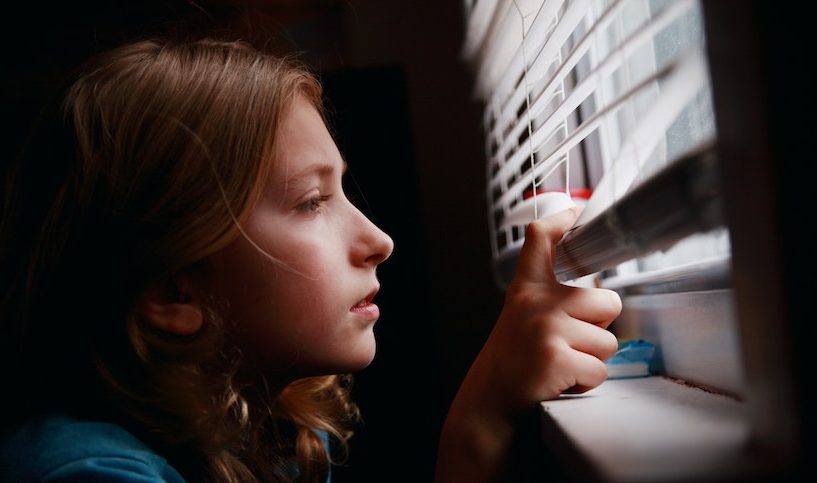This is our third and final part of our conversation with Jason Sullivan, mental health expert and Therapist at Kuwait Counselling Center who has been answering our questions about our mental health and well being in the current situation. In this part we are looking to the future and figuring out how we can move forward. Part 1 and 2 here.
How effective can telepsychiatry be for someone who has never experienced therapy or counseling previously?
There is a bit of a difference between teletherapy and telepsychiatry. Teletherapy focuses more on the processing and step by step growth of the individual. Telepsychiatry on the other hand deals more with the medical and physiological aspects of mental health where medications are involved. They can both be extremely beneficial and really, during this time, are our only options for mental health care. I would say that the efficacy of them rests upon two factors.
The first is the quality of the Therapist or Psychiatrist. We live in a world that focuses on quick fixes and simple steps to address complex problems. I advise that when looking for a therapist in any capacity that you look for someone who knows their field as thoroughly as possible and does not try to fix you. Therapy is not comparable to the work of a mechanic. A broken piece cannot be observed removed and replaced. It is rather a process that should be treated with respect, honoring the vulnerable risk that the client has taken in sharing their deepest struggles. This would also mean observing absolute confidentiality. What you share in that session stays in that session.
The second is the engagement the individual is willing to risk. I have been a Therapist for over a decade and have met with literally thousands of people. The one sustaining fear that each person comes with is that they are somehow uniquely messed up in a way that no one else is and that if anyone knows who they “really are” they would run away and never come back. The truth of the matter is that we all feel this way. We have different parts in our subconscious minds that fight this out every day. Jüng called them the Mask and the Shadow. The Mask is the part that we put forward to be accepted socially and the Shadow is that part of us that we hide with every ounce of our being.
When you engage in therapy remember that you are much stronger than you think you are and that is evident in the fact that you have chosen to take the journey of your mental health beyond what many will ever do. This is bravery in the highest order.
As a mental health therapist, can you advise us on how to choose which mental health, telepsychiatrists or life coach apps to trust?
Therapy and Therapists vary on many levels. There is never a one size fits all approach. However, there are definitely qualitative differences in how we as Practitioners conduct our work. I would suggest that when you are looking for a mental health provider to ask some of the following questions:
1. What type of therapy do you do?
2. How long have you been a Therapist?
3. What are your standards for confidentiality?
4. What are your credentials? (what degrees do they hold, what certification etc)
One of the reasons that I chose to work with Kuwait Counseling Center was because every therapist knows what they do, they are qualified and extremely knowledgeable, they honor the experiences of their clients with the highest degree, and they hold the highest standard for confidentiality that I have seen. These qualities are my personal standards and it has been a great fit.
Life Coaching of course is a bit different than Mental Health Therapy. A good life coach will tell you that they are not qualified to diagnose or treat mental disorders and they will not try. Rather the benefit of Life Coaching lies in their unique ability to foster good strategies in life and offer fresh approaches to situations.
Will this experience change how we deal with people interpersonally? What does social distancing, leading to distant socializing through technology, mean for how we will relate to others and will this mean a step change in the meaning of community?
Social distancing is very different from isolation. It means that while we keep a broad physical proximity, we look for new ways of maintaining emotional and social engagement.
I believe that there are two ways to view this scenario. On one hand there is a fear that people can become more attached to their mobile devices which in the long term will lead to deeper isolation after this time passes. I personally am a bit more optimistic. I have met with several people through video and audio discussions and the general consensus is “I didn’t realize how much time I spent on my mobile until it was all I had to do. I miss my friends and can’t wait to be with them again”. It is not only basic engagement that has suffered due to this but also remember that people are having birthdays, babies are being born and though these are tremendously joyous experiences we are having to share them differently.
The second view would be that of the old adage “absence makes the heart grow fonder”. We have been immersed in such rapid technological development that the majority of communication that we engage in today would not have been dreamed of 25-30 years ago. Instagram, Snapchat, Facebook etc. have all come to the forefront and have been easy ways for people to remove a lot of the intimacy that would have been unavoidable in earlier recent history. I believe that we are using these same platforms now and a vast majority are looking for that same intimacy. I believe that this has in many ways ignited people to search for a category of closeness that they otherwise may have never known they lacked.
“We should all take this time to understand the importance of personal time and time for ourselves; time to reflect, time to invest in personal growth, time to organize our thoughts and emotions. The fast pace of the world and the society in general has been affecting people with the way they love and respect themselves and enjoy spending time with themselves. For this reason, we hope that this social distancing move serves to help people better understand and know themselves.”
Dr. Joanne Hands, Clinical Director at Kuwait Counseling Center and overall amazing person
Are we experiencing grief at the moment? And what might we be grieving?
There is certainly an observable structure to grief as seen across cultures, however that is more of a guideline for us as mental health professionals as opposed to being factual. Grief presents in various ways across people and places, culture having a major role to play in its expression and narrative.
Dr. Nicole Desai a Therapist at Kuwait Counseling Center
Grief is often experienced in waves — while at times, one feels like they have made peace with many aspects of their loss and they are able to ride ‘the wave’ of grief they experience, other times hold an experience of overwhelming sadness, anger and frustration stemming from the loss. It is this that I believe the experience of loss has in common with that of isolation. In fact, one lens I use as a psychologist, to understand isolation is that of loss.
We can better understand this isolation as a loss of:
• freedom and ‘carefreeness’ of our existence
• familiar life routines and patterns
• safety and a certain degree of control
• personal contact with family and friends
• freedom for personal closeness, with an increased reliance on gadgets to connect to others
After the crisis is subdued, there may be people who feel guilt from surviving to their behavior during the crisis. What should they do to overcome this?
Guilt is often felt after a traumatic experience. It is also a part of the Grieving Process. I think it is important to make the distinction between guilt and shame at this point. Guilt is the understanding that one has done something wrong or has committed an action that in hindsight they deem as inappropriate. Guilt is also a legal term that is a pronouncement of what is deemed as an action that breaks a given law.
Shame, however, is more like the punishment carried out after a guilty verdict. Guilt may say that I have done something wrong but shame will tell us that I am something wrong. One focuses on the action while the other is an existential statement.
We usually punish ourselves out of shame and through guilt we have the ability to evaluate our actions as separate from our core being, thus, offering us the opportunity to grow and move forward.
This distinction is significantly important when it pertains to Survivor’s Guilt. As part of our mind’s ability to cope with change it must process our experiences, both good and bad, to make sense of them. Guilt can be processed from the perspective of the misperception of an event. This means that I can question why I feel guilt. Shame however will make the pronouncement that I am a selfish person for surviving or that if I were good enough others would have been better off. This is misplaced responsibility, based on shame and hinders our ability to cope and deal with trauma in a healthy manner.
“Survivor’s guilt can have a serious impact on a person’s life and functioning. Some of the self-help strategies that can help people to manage anxiety, feeling of guilt and helplessness are the following:
1.Remember that these feelings are normal and common
2. Focus on the outside factors that led to an event
3. Allow yourself to grieve
4. Do something positive
5. Practice self-forgiveness
It’s important to acknowledge your guilt and get appropriate psychotherapy and counseling help if these feelings become too difficult to manage on your own.”
Dr. Jelena Mustapić Therapist at Kuwait Counseling Center
What would be your top 5 recommendations for maintaining mental well-being in these times?
The best ways to maintain mental well-being in these times would be:
1. Know the difference between social distancing and Isolation
2. Keep a good daily routine with structure throughout the day
3. Make sure you are getting exercise
4. Set goals that you would like to accomplish during this time that you might not have the time for when our daily routines shift back to normal.
5. Keep a healthy and balanced diet. Our tendency in stressful times is to rely on carbohydrates and sugars to make us feel better. Don’t overdo it.
Most importantly remember this time will end and better things are yet to come.
Reach out to Jason for a counselling session through the Kuwait Counselling Center or through Instagram @quietchaoskw and his website quietchaoskw.com to listen to his podcast and find more information on mental health issues. Photo by Sharon McCutcheon on Unsplash.











